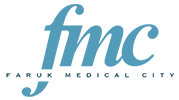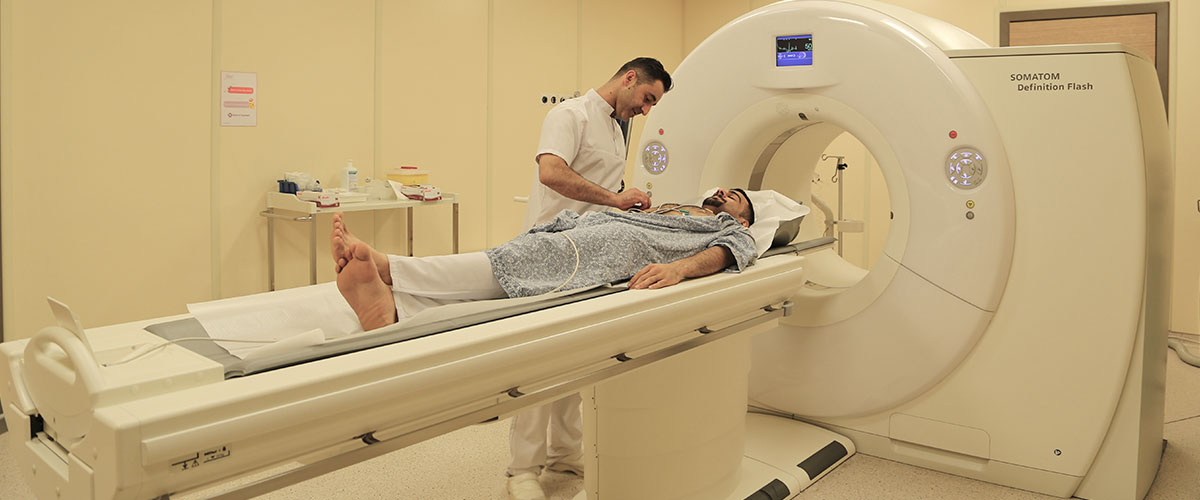Area: Radiology
Computed Tomography Scan (CT) Scan is a radiological examination method to view any part of the body in cross sections. The examination allows the physicians to evaluate the required body or organ using sectional images in order to reveal the cause to the disease.
Before the procedure:
- Your doctor will let you sign a consent after explaining the procedure; make sure you understand and ask all questions before you sign.
- Metal objects, including jewellery, eyeglasses, dentures and hairpins, may affect the CT images and should be left at home or removed prior to your exam.
- You may also be asked to remove hearing aids and removable dental work. Women will be asked to remove bras containing metal underwire. You may be asked to remove any piercings, if possible.
- You have to be fasting (not to eat or drink anything) for a few hours before the procedure. If contrast material will be used in your exam. You should inform your physician of all medications you are taking and if you have any allergies well before the exam time. If you have a known allergy to contrast material, or “dye,” your doctor may prescribe medications (usually a steroid) to reduce the risk of an allergic reaction. These medications generally need to be taken 12 hours prior to administration of contrast material.
- Also inform your doctor of any recent illnesses or other medical conditions and whether you have a history of heart disease, asthma, diabetes, and kidney disease or thyroid problems. Any of these conditions may increase the risk of an unusual adverse effect.
- In case of pregnancy, women should always inform their physician and the CT technologist.
- Lactating patients should avoid breast feeding 24 hours after the contrast admiration; it is suggested that they store milk prior to procedure.
- The actual CT scan may take less than 30 seconds and the entire process, including exam preparation, is usually completed within 30 minutes.

